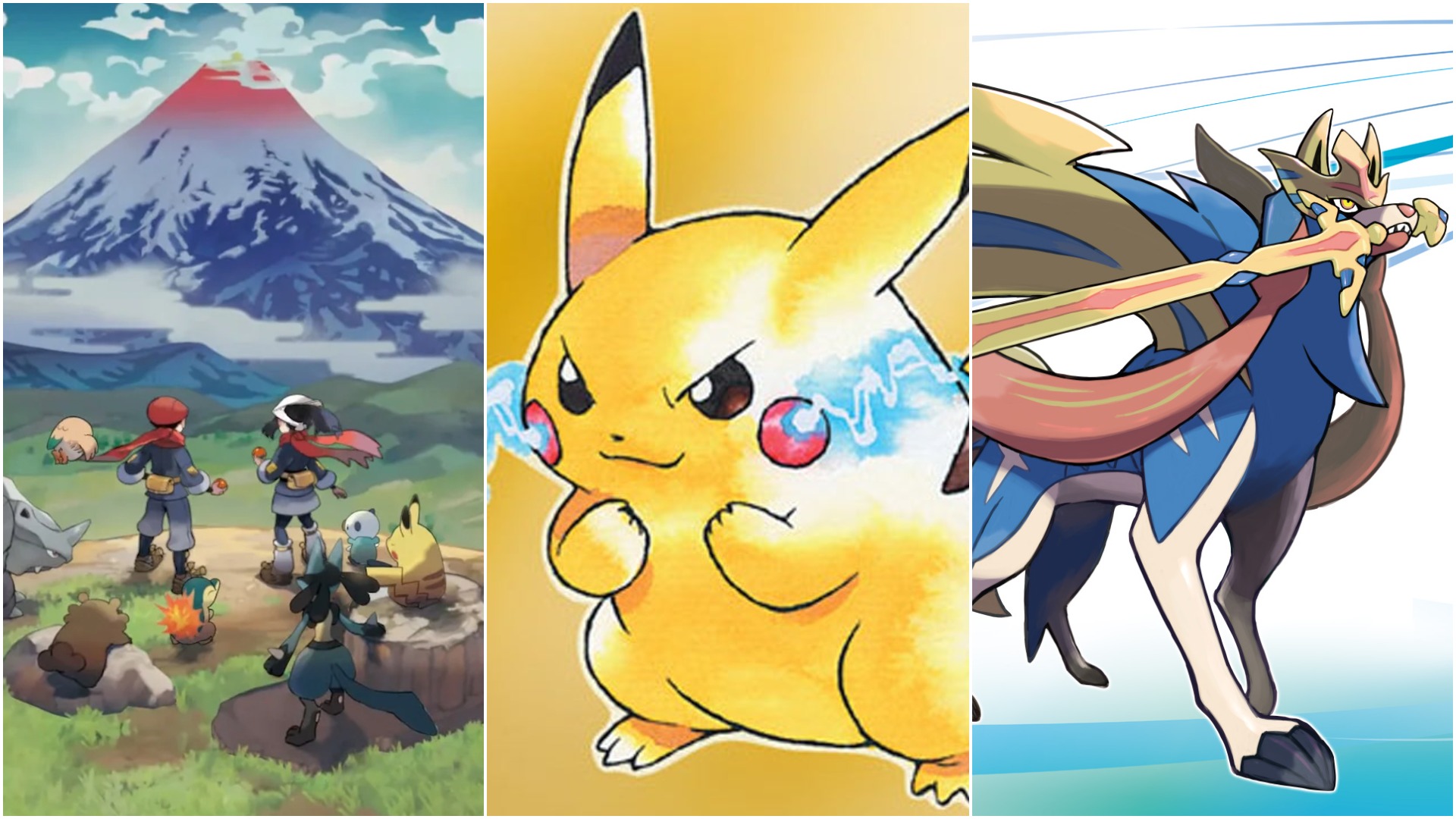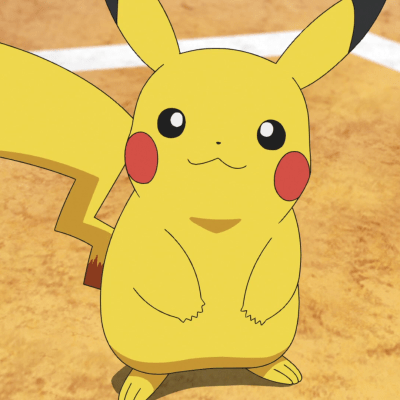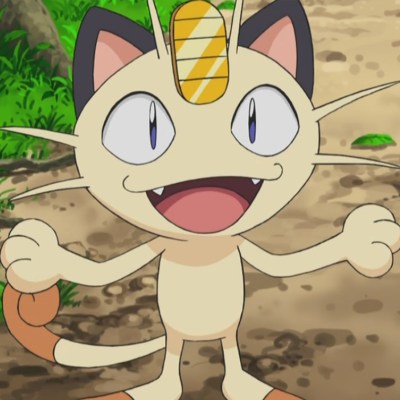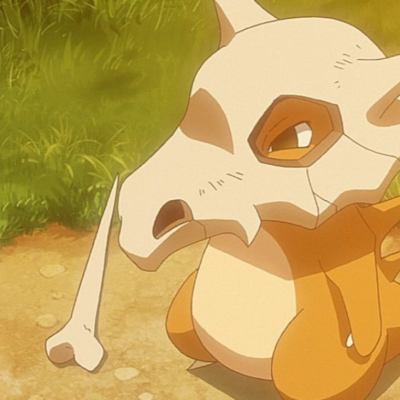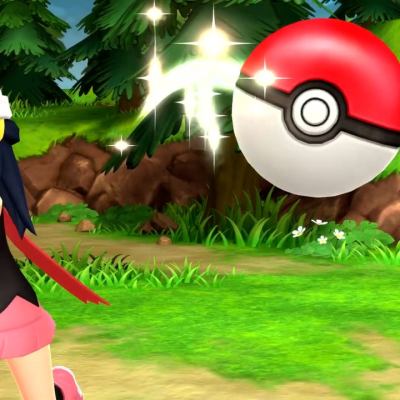Pokémon Legends: Arceus is a game of many firsts for the Pokémon franchise. The game is the first entry in the series to provide an open world, Breath of the Wild-like experience (even though it isn’t technically a full open world game), and, most importalty for our purposes today, Arceus is supposed to be the first chronological entry in the series.
In Pokémon Legends: Arceus, players wander the verdant land of Hisui, before it became Sinnoh and before Pokémon were ingrained into the culture. The Pokedex doesn’t exist yet; the villainous Team Galactic is known as the altruistic Galaxy Expedition Team, and Poke Balls are handcrafted out of fruits known as Apricorns instead of mass produced. The entire game looks like something out of Japan’s Industrial Revolution, and yet players can use a smartphone known as the Arc Phone. This raises the important question of when Pokémon Legends: Arceus takes place in the Pokémon franchise’s timeline. So far as taht goes, the series has so many remakes that it’s hard to pin down a definitive timeline. Instead, we’re going to try mapping a rough map for the series’ timeline that should clear up some chronological confusion.
For the sake of simplicity (and sanity), we will restrict this list to main games only. No spin-offs like Pokémon Snap, no anime, and no musical plays. Also, since the Pokémon series doesn’t ever provide calendar years, we will label games as taking place before the adventures of the first entry’s protagonist Red (BR) and after Red’s adventures (AR).
With that said, let’s wade in.
Pokémon Legends: Arceus
Timeline Date: ???? BR
Universe: Unknown, maybe its own
Pokémon Legends: Arceus is obviously the first entry in the series chronologically. While every Pokémon game tasks players with filling out a Pokedex, they also take place in regions full of towns to visit, Trainers to battle, and Gyms to dominate. Arceus has none of that.
The land of Hisui is completely untamed. Jubilife Village is the only civilization for miles around, and its citizens view Pokémon the same way real-life humans view lions, tigers, and bears: wild and dangerous animals. Even the Arc Phone’s anachronistic presence can be hand-waved away thanks to time-traveling Pokémon like Celebi and Dialga.
While Pokémon Legends: Arceus most likely takes place before every other game, it’s impossible to pin down the title’s universe. Arceus doesn’t feature any Mega Evolutions, Dynamaxing, or Z-Moves, but, thanks to the presence of Strong and Agile Style moves, Arceus might signal the beginning of its own universe.
Pokémon Red, Blue, and Yellow
Timeline Date: 0 AR
Universe: Original
The games that started them all, Pokémon Red, Blue, and Yellow all tell the same story…kinda. On his tenth birthday, a young boy by the name of Red and his rival Blue are finally given their starter Pokémon so they can catch other Pokémon, defeat Team Rocket, and finally become PokémonMasters. While differences crop up between stories (e.g., Red in Yellow is given a Pikachu instead of a Charmander, Squirtle, or Bulbasaur), they all take place during the same time.
Two of the biggest hints that Red, Blue, and Yellow take place chronologically before other titles (aside from Legends: Arceus) are the archaic technology and a now-deleted tweet. Red and Blue don’t have cellphones or anything, but if that’s not enough, the Game Scenario Writer Toshinobu Matsumiya stated quite clearly that, at the time of writing, Red, Blue, and Yellow are chronologically the first in the series. If you can’t believe him regarding the chronology of Pokémon, who can you trust?
Read more
Pokémon Ruby, Sapphire, Emerald, FireRed, LeafGreen
Timeline Date: 0 AR
Universe: Main
In Pokémon Ruby and Sapphire (and by extension Emerald), players can pick their protagonist, Brendan or May, and go on a journey to catch as many Pokémon as they can, save the world from a new evil organization, and eventually become the Pokémon Champion. Since this game boasts many more Pokemon, as well as new tech such as the PokeNav, you might assume it takes place after Red, Blue, and Yellow. Nope. According to Toshinobu Matsumiya, the events of Ruby and Sapphire (and Emerald) occur at the same time. How is this possible? Parallel universes.
Pokémon Ruby, Sapphire, and Emerald occur in what is known as the Main universe, not the Original one. These games don’t actually “take place alongside” Red and Blue but instead their remakes, FireRed and LeafGreen. Much of the remakes’ plots remain unchanged, but some differences crop up. For instance, after becoming Pokémon Champions, the main characters visit the Sevii Islands to defeat Team Rocket once and for all. But otherwise, FireRed and LeafGreen are updated copies of the games that started it all.
Pokémon Omega Ruby and Alpha Sapphire
Timeline Date: 0 AR
Universe: Main
Pokémon Omega Ruby and Alpha Sapphire are, quite obviously, remakes of Ruby and Sapphire but with one major change: Mega Evolutions. Because certain Pokémon can temporarily evolve into even more powerful forms in these remakes, the titles are widely regarded as part of yet another Pokémon universe, the Mega universe. And, since they primarily retell the events of Ruby and Sapphire, the remakes also essentially take place during the same time.
Pokémon Let’s Go, Pikachu! And Let’s Go, Eevee!
Timeline Date: ???? AR
Universe: Unknown
While Pokémon Red and Blue were remade into FireRed and LeafGreen, Yellow was left on the sidelines until the Nintendo Switch. For the most part, Let’s Go Pikachu! and Let’s Go Eevee! follow the events of Pokémon Yellow, but one version gives players an Eevee, not a Pikachu. However, the game’s placement on the timeline becomes fluid when Red and Blue enter.
While the main characters Chase and Elaine do everything Red did in Yellow (such as defeating Team Rocket to becoming Pokémon Champions) Blue tells them about his adventures with Red. And, Red is already an ex-Champion. How is this possible? Were Red and Blue born earlier in the game’s world, or did Team Rocket form later? Nobody knows, so we can’t determine exactly when Pokémon Let’s Go, Pikachu! and Eevee! take place on the timeline, even if they seem to fall into this general area.
Pokémon Gold, Silver, and Crystal
Timeline Date: 3 AR
Universe: Original
Three years after Red and Blue started their Pokémon journeys in Kanto, Ethan and Kris begin theirs in Johto. Not only does Toshinobu Matsumiya’s tweet confirm that the game takes place after Red, Blue, and Yellow, but in-game events point to the passage of time. For instance, Cinnabar Island is now destroyed; Koga is now a member of the Elite Four, and his daughter Janine now handles Gym duty.
Unfortunately, since Pokémon Ruby and Sapphire are the next entries in the series, Gold, Silver, and Crystal mark the end of the original timeline. On the bright side, though, the game caps off with a fight against Red. Nothing quite playing a game as one character, playing the sequel as another, and finishing off with a battle between the two.
Read more
Pokémon Diamond, Pearl, Platinum, HeartGold, and SoulSilver
Timeline Date: 3 AR
Universe: Main
Thanks to Toshinobu Matsumia, we know for certain Pokémon Diamond, Pearl, and Platinum take place during the events of HeartGold and SoulSilver. But because of the technological advances seen in Diamond, Pearl, and Platinum, that means the games take place in the same universe of the remakes, HeartGold and SoulSilver.
If it weren’t for Matsumia’s tweet, the Pokémon franchise would be an anachronistic mess. After all, how could a game that sports a prototype of a smartwatch take place during another game that has a Nokia flip phone at best?
Pokémon Brilliant Diamond and Shining Pearl
Timeline Date: 3 AR
Universe: Unknown
Like other remakes before them, Brilliant Diamond and Shining Pearl primarily retell the events of their source material, which should place them at the same times in their respective universes. Moreover, new locations, such as the Grand Underground, and the inclusion of the Fairy-type (which didn’t exist until X and Y), firmly plant the remake in a different universe. Unfortunately, without Mega Evolutions or Dynamaxing, we can’t really determine if Brilliant Diamond and Shining Pearl live in an existing universe or started their own.
Pokémon Black and White
Timeline Date: 3+??? AR
Universe: Main
In Pokémon Black and White, players control Hilbert and Hilda. As the story progresses, they are introduced to the seemingly benevolent Team Plasma and their leader N, who want to fight for the freedom of all Pokémon. Players eventually find out that Team Plasma just wants to rule the world, N is as pure as he claims, and after many battles, Hilbert/Hilda become Pokémon Champions. However, players never learn where the games fall on the timeline.
Once again, many technological advances (and Toshinobu Matsumiya’s tweet) indicate that Black and White take place after Diamond, Pearl, and other games. However, since Gold and Silver explicitly state three years passed since Red and Blue, we know Diamond and Pearl also take place around that time. Black and White don’t share any such links. We don’t know how many years have passed since Red/Blue and Black/White, but we do know that some number of years have passed.
Pokémon Black 2 and White 2
Timeline Date: 3+???+2 AR
Universe: Main
Just like Gold and Silver before them, Pokémon Black 2 and White 2 are some of the only true sequels in the franchise. And, Black 2 and White 2 sport many changes to indicate this. Gym leaders such as Brycen and Lenora have passed on the mantle; Iris has become the new Champion, and Team Plasma has dropped all pretense to pursue world-dominating terrorism ala G.I. Joe’s Cobra. Moreover, the protagonists are replaced by Nate and Rosa.
While Pokémon Black 2 and White 2 kinda pick up where Black and White leave off, two years have still passed between the games. That’s all we know, which would help us figure out when the games take place except for one small problem: we still don’t know how many years passed between Red/Blue and Black/White.
Pokémon X and Y
Timeline Date: 3+???+2 AR
Universe: Mega
Pokémon X and Y was a new beginning for the series. The game was the first non-spin off title to let players explore and battle in a 3D, and it introduced new mechanics in the form of Mega Evolution. Unfortunately, much like Black and White, the games didn’t indicate where they set on the gordian knot that was the Pokémon timeline. Thankfully, Toshinobu Matsumiya stated that X and Y take place at the same time as Black 2 and White 2.
On the bright side, we also now know that Calem and Serena started catching Pokémon and fighting Team Flare around the same time Nate and Rosa started defeating Team Plasma grunts. But, thanks to the shift in universes, we also know they will never meet.
Pokémon Sun, Moon, Ultra Sun, and Ultra Moon
Timeline Date: 3+???+4 AR
Universe: Mega
At first glance, Pokémon Sun, Moon, Ultra Sun, and Ultra Moon are yet another semi-reboot. Players control either Elio or Selene in the new Alola region, and apparently even more time has passed since X and Y — another two years. This knowledge doesn’t seem to impact the game at all since players still have to catch ‘em all and defeat the Aether Foundation. But, then players bump into Red, all grown up and as silent as ever. He is the crucial lynchpin in the timeline since if we ever learn his age when visiting Alola, we can use that knowledge to finally determine where Black and White sit on the timeline.
While many players might have been put off by losing Mega Evolutions and having them replaced by Z-Moves, Sun, Moon, Ultra Sun, and Ultra Moon hand over Mega Evolutions post-main story, revealing the games’ Mega universe origins. But, that isn’t half as surprising as the sudden appearance of Team Rainbow Rocket, which is made up of villainous leaders across Pokémon history. Not only do these powerful foes tickle the nostalgia bones of many players, but they outright state they come from different universes where they were defeated, essentially confirming the Pokémon multiverse theory as canon.
Pokémon Sword and Shield
Timeline Date: ???? AR
Universe: Unknown
When The Pokémon Company and Nintendo introduced Pokemon Sword and Shield, the game was touted as a soft reboot (again). Players could explore yet another new region in the form of Galar and catch Pokémon in the series’ first open areas. And, while Gym battles temporarily disappeared in Alola, they returned in a big way. Literally. The new gimmick this time was Dynamaxing, which is kinda like Mega Evolution but any Pokémon can do it. And a select few have access to even more powerful forms through Gigantimaxing.
Unfortunately, because of all these changes, we are utterly lost when it comes to where, exactly, to place Sword and Shield in the timeline and multiverse map. New technology is present in the form of the Rotom Phone, but given how time works across the Pokémon universes, that isn’t proof of anything. Moreover, Pokémon can’t Mega Evolve anymore, but does that prove Sword and Shield takes place in its own universe? After all, Eternatus is supposed to be the source of all Dynamaxing and Gigantamaxing, so for all we know the phenomena is exclusive to Galar, and everywhere else Trainers can use Mega Evolution.
